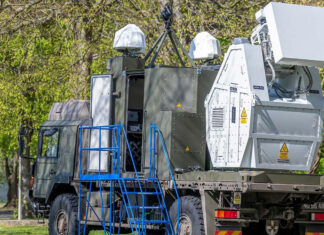 The past week has seen significant escalation from the Gaza area, with the launching of rockets from the Gaza Strip and Israeli responses to these launchings. There is concern that the dynamic of escalation will inevitably lead to a decision by Israel to initiate another large scale operation in the Gaza Strip along the lines of Operation Pillar of Defense and perhaps even Operation Cast Lead. Since it is likely that the current escalation is not due to a deliberate policy by Hamas, rather the result of its loss of control in a situation in which a border incident motivates a response by a Palestinian group, leading to an Israeli response, and so forth, Israel’s main objective is to prevent escalation into a full scale conflict that neither side wants, without harming the ability to deter Hamas and other players in the Gaza Strip.
The past week has seen significant escalation from the Gaza area, with the launching of rockets from the Gaza Strip and Israeli responses to these launchings. There is concern that the dynamic of escalation will inevitably lead to a decision by Israel to initiate another large scale operation in the Gaza Strip along the lines of Operation Pillar of Defense and perhaps even Operation Cast Lead. Since it is likely that the current escalation is not due to a deliberate policy by Hamas, rather the result of its loss of control in a situation in which a border incident motivates a response by a Palestinian group, leading to an Israeli response, and so forth, Israel’s main objective is to prevent escalation into a full scale conflict that neither side wants, without harming the ability to deter Hamas and other players in the Gaza Strip.
Analysis by Shlomo Brom, INSS.
The past week has seen significant escalation from the Gaza area, with the launching of rockets from the Gaza Strip and Israeli responses to these launchings. There is concern that the dynamic of escalation will inevitably lead to a decision by Israel to initiate another large scale operation in the Gaza Strip along the lines of Operation Pillar of Defense and perhaps even Operation Cast Lead. The purpose of this article is to analyze the reasons for the escalation, the chances that it will continue, and the best policy for Israel.
The key questions are whether the escalation is intentional, and whether both sides still share an interest in maintaining quiet but are liable to lose control of the escalation dynamic.
The key questions are whether the escalation is intentional, and whether both sides still share an interest in maintaining quiet but are liable to lose control of the escalation dynamic. The picture on the Israeli side is clear: Israel has no interest in unseating the calm. For Prime Minister Netanyahu, the dramatic and almost complete halt in rocket fire from the Gaza Strip since Operation Pillar of Defense is a substantial achievement, and there is no reason why he would want to risk it. The Arab world can amuse itself with conspiracy theories about Israel wanting to torpedo the negotiations with the Palestinians through escalation in the Gaza Strip, but there are no grounds for this claim, because continuation of the negotiations after April 2014 is in Israel’s interest. A crisis in the negotiations, especially when the chances are that Israel will be blamed for it due to its “disproportionate response,” in not in Israel’s interest.
Among the Palestinians in the Gaza Strip, the picture is less clear. There is no doubt that some of the armed organizations in the Gaza Strip, be they Islamic Jihad elements or Salafist-jihadist factions and other small groups, want to upset the negotiations and intensify the violent conflict with Israel. As far as is known, the rockets were launched by these groups without authorization from Hamas, the ruling power in the Gaza Strip, and probably also without authorization from commanders of Islamic Jihad, the second largest organization in the Gaza Strip after Hamas. Until recently Hamas was able to take decisive action against these groups and restrain them. The question therefore is whether Hamas has changed its policy or whether it is unsuccessful in restraining these groups, which could indicate that its control in the Gaza Strip is becoming less effective.
The Hamas movement is experiencing a difficult period that is weakening it politically and militarily. The civil war in Syria forced it to sever its connections with two of its important supporters, Syria and Hizbollah, and caused an almost complete break with Iran, its main source of support in money and arms. Hamas counted on closer ties with those considered to be the new rising stars following the upheavals in the Arab world – the Islamic movements. It believed that its close ties with Egypt under the Muslim Brotherhood, wealthy and influential Qatar, and Turkey under Erdogan would more than compensate for the loss of its traditional allies, but events proved otherwise. President Morsi was overthrown, and the military government in Egypt is very hostile to Hamas, which it regards as part of the military and subversive threat posed by the Muslim Brotherhood. Egypt has in effect cut off the lifeline to the Gaza Strip – the smuggling tunnels on the Sinai-Gaza border, and furthermore, Egypt attributes the activity by the Bedouin jihad groups in Sinai against the Egyptian regime and its security forces to the direction and aid supplied by Hamas. In Qatar, the aging and ill emir transferred his title to his son; this young successor is much less enthusiastic about Qatar’s activist foreign policy and its relations with Hamas. Erdogan, meantime, has his own troubles, and in any case the access of Turkey and Qatar to the Gaza Strip depends on Egypt’s (non-existent) goodwill. The result is that in contrast to the situation following Operation Cast Lead, when Hamas quickly restocked its weapons stores – and with heavier rockets since Operation Pillar of Defense Hamas has had difficulty in its regular weapons smuggling. It is attempting to make up for this by developing and producing long range rockets by itself, but there is an enormous difference in accuracy and destructive power between these rockets and the rockets of military quality smuggled from Iran. Militarily, Hamas is thus not ready for a new round of full scale warfare, and its political situation is even worse. Other parties in and outside the region are no longer eager to conduct relations with it, and key players in the Arab world, headed by Egypt and Saudi Arabia, are actively hostile to it.
Militarily, Hamas is thus not ready for a new round of full scale warfare, and its political situation is even worse. Other parties in and outside the region are no longer eager to conduct relations with it, and key players in the Arab world, headed by Egypt and Saudi Arabia, are actively hostile to it.
Hamas is making efforts to improve its unfavorable situation through two channels. On the one hand, it is trying to renew its relations with Iran, thus far with only partial success. Iran under President Rouhani is attempting to achieve a rapprochement with the West, and has no reason to highlight relations with Hamas. For example, Khaled Mashal’s request to visit Tehran was rejected. It is also possible that Hamas’s behavior has made Iran regard it as an untrustworthy group that cannot be trusted, and that Iran is therefore wary of a renewal of relations with it. On the other hand, Hamas is behaving in a conciliatory fashion vis-à-vis Egypt and the Palestinian Authority leadership in Ramallah. Recognizing its dependence on Egypt, the organization is trying to avoid irritating it, and is also attempting to jumpstart reconciliation talks with Fatah, under the assumption that this will alleviate its political isolation. For this reason, the organization, beyond its routine statements, is making no special effort to undermine the diplomatic negotiations with Israel (which it regards as likely to fail in any case).
It could be argued that further deterioration in Hamas’s situation could back the organization into a corner and lead it to conclude that it has nothing to lose, and that the only way out of its plight is to ignite the situation. This might indeed occur in the future, but to date it appears that no such conclusion has been reached, and the organization is trying to relieve the pressure on it through political measures. It is therefore likely that the current escalation is not due to a deliberate policy by Hamas, rather the result of its loss of control in a situation in which a border incident motivates a response by a Palestinian group, leading to an Israeli response, and so forth.
Israel’s main objective is to prevent escalation into a full scale conflict that neither side wants, without harming the ability to deter Hamas and other players in the Gaza Strip.
If so, Israel’s main objective is to prevent escalation into a full scale conflict that neither side wants, without harming the ability to deter Hamas and other players in the Gaza Strip. Israel cannot alter its basic policy formulated after Operation Pillar of Defense, whereby it must respond to rocket launchings from the Gaza Strip with painful attacks on targets of Hamas and the other organizations in Gaza, as otherwise the deterrence achieved in the two large scale operations in the Gaza Strip will lose its effectiveness. These responses, however, must be proportionate, and at the same time it is necessary to closely monitor the behavior of Hamas, which Israel regards as responsible for events in Gaza, even if other groups are the ones launching rockets. If Israel reaches the conclusion that Hamas is making a real effort to prevent other groups from operating against Israel, it should halt the cycle of responses and counter-responses through a tactical delay of its responses. If this proves ineffective, Israel can always renew its attacks.
 Shlomo Brom, a senior research associate at the Institute for National Security Studies, joined the Jaffee Center in 1998 after a long career in the IDF.
Shlomo Brom, a senior research associate at the Institute for National Security Studies, joined the Jaffee Center in 1998 after a long career in the IDF.

















